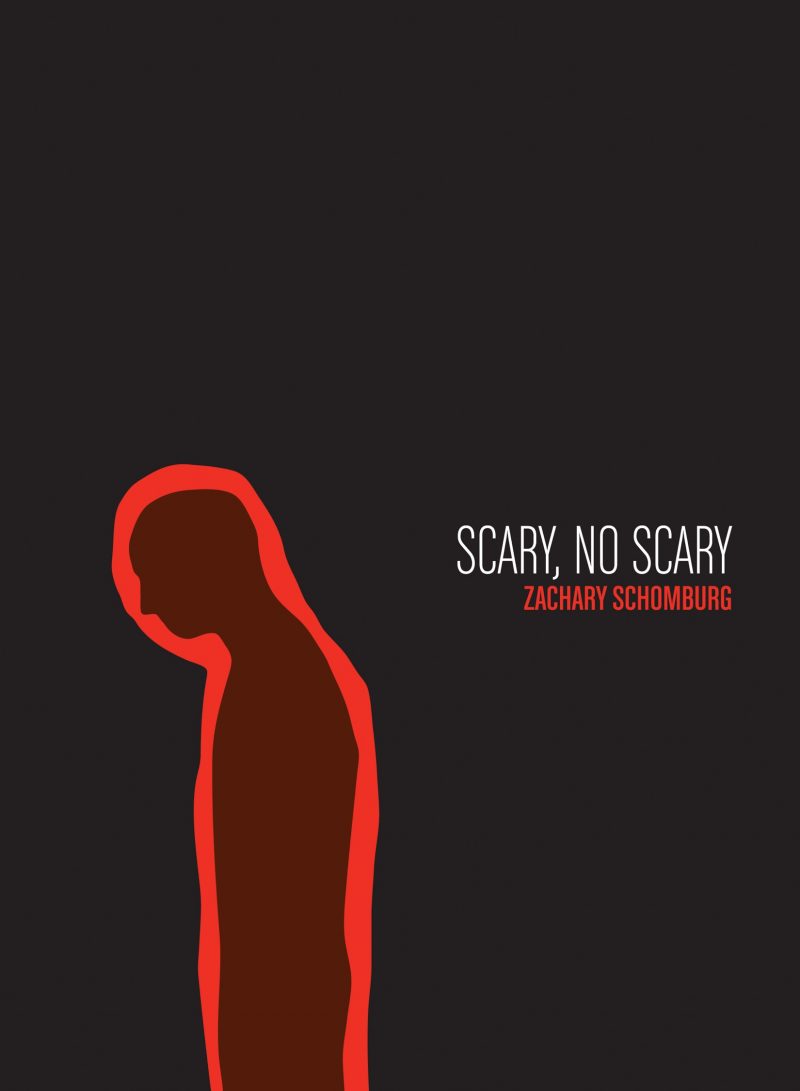On the cover of Scary, No Scary, the Portland poet Zachary Schomburg’s second and best book, there is a man. He is featureless and red and haloed in redder fire; his head is down but his back is straight. Inside the book are figures who encounter their own skeletons, who paddle about in endless ponds and wander through thousands of abandoned hotel rooms and participate in bizarre inter-epochal sex scenes; they live in poems with titles like “The Fire Cycle,” “More and More Jaguar,” and “Your Limbs Will Be Torn Off in a Farm Accident.” Surprising, then, that Scary, No Scary is best described as happy—surprising that out of chaos, darkness, fire, and violence Schomburg builds a fearlessly balanced galaxy, a cosmos inhabited by angry mobs and bleeding trees but thick with sweetness and blossoming light.
Schomburg’s themes are many: fear, of course, and death and disappearance, but also love and sex and sailboats and children and hope. His poems—most of them short, most of them fondly clever, all of them in prose or free verse—also sidestep the usual sensualities as well as most familiar forms of prosody, poeticism, and figurative language—even metaphor—in favor of a personal symbology. The world, for instance, “is the inside of the skull / of a moth / let go above the open sea.” Elsewhere, a tree is “blooming with broken hummingbirds instead of leaves.”
Stylistically speaking, the very variety of Schomburg’s interests seems almost to require a kind of sweetly askew, tamely savage allegory. But the speakers of Scary, No Scary are both semi-surrealist and only semi-serious; a voice out of “The Pond” tells us, “I can fit a number of things in my pants.” There is a certain jaunty confidence here that unifies the volume, propels the reader through its endless switching from long, narrow verse forms to fat blocks of prose, its involutions through bats and lava and dead birds and severed limbs and dying trees and the rest of the lushly macabre bric-a-brac at which Schomburg excels.
There are certain other effects, however, whose strength is their graceful reticence, their absence of jungliness. Take the last lines of “Falling Life”:
You are a brave little boy
or girl.
Very few poems end with an afterthought; one suspects that even fewer poems end with an afterthought that works, with such well-intentioned and self-defeating doofistry, to...
You have reached your article limit
Sign up for a digital subscription and continue reading all new issues, plus our entire archives, for just $1.50/month.
Already a subscriber? Sign in





